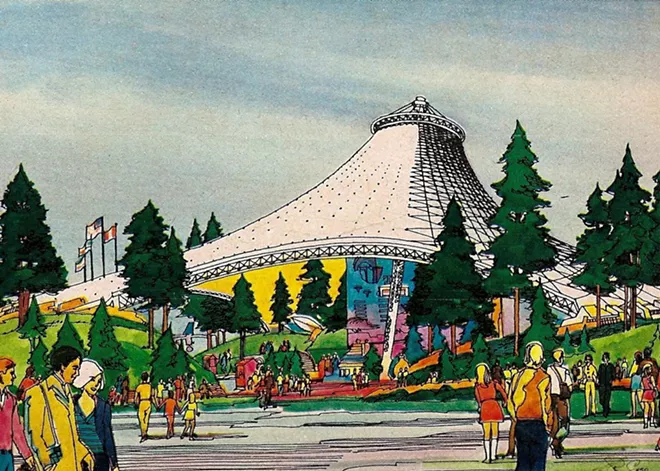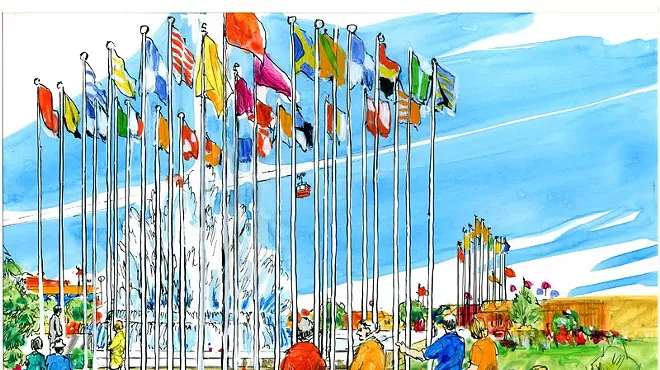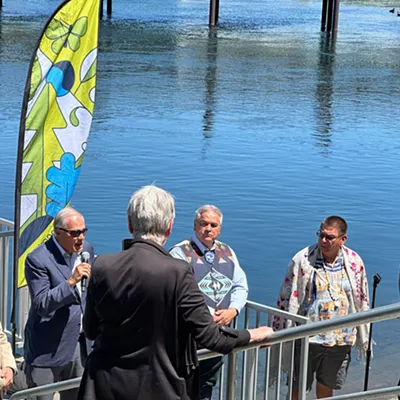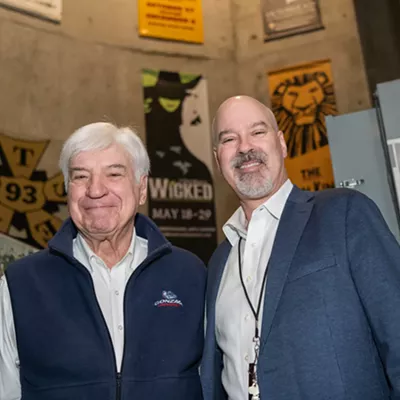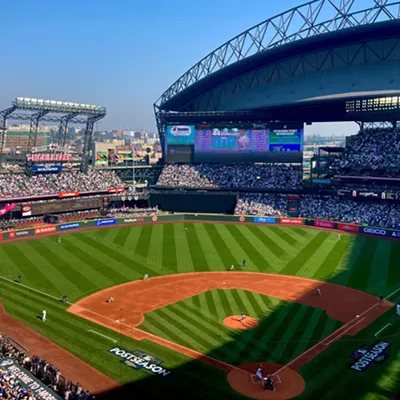The slogan for Expo '74 was "Celebrating Tomorrow's Fresh Environment." It's perhaps now hard to read without cringing a bit, viewed from the vantage of half-a-century. But that idealism did permeate much of the planning and execution of the fair. And the fair's legacy, while imperfect, produced significant ecological progress.
Concern about the environment was certainly brewing long before Earth Day was first celebrated in 1970, inspired by the massive 1969 oil spill off the coast of Santa Barbara. In Spokane, the most obvious environmental blight was the state of the Spokane River, its islands and riverbanks.
So how bad was it? In his book The Fair and the Falls, Bill Youngs shares the firsthand account related by Spokanite Mike Green, who fished in the river in the 1950s. "It's hard to believe that a city could have treated a river as badly as Spokane did that stream," Green says. "I mean, it was an open sewer. There's no other way to describe it... The willows along the bank would be festooned with all sorts of unmentionables.' He went on to say that when he fished, he would have to stop and clear the human hair that clumped onto his fishing line. There was certainly room for improvement.
Even when choosing Expo '74's official theme "Preserve the Environment," organizers acknowledged that although they hoped for significant progress, they wouldn't be able to achieve all their goals in the years leading up to the fair. "But the theme of a world's fair dedicated to ecology added urgency to ecological discussions," Youngs writes. "A broad-based consensus for change had emerged; it involved Spokane citizens, Expo board members and government officials, all of whom agreed that a city hosting a fair on the environment should set a good example in ecological matters."
In a report conducted after the fair, the city of Spokane was judged as falling short in actually "depolluting" the Spokane River's water; outlying areas, however, were found to have improved their water treatment systems, spurred by the emphasis of Expo '74. The fair's theme also spurred conversations among business and government stakeholders on how to improve. In the years since, often prompted by federal goals, major efforts involving all levels of government have prioritized cleaning up the river.
There were more tangible efforts that showed off the city's heightened environmental awareness. Promoting the new concept of recycling, Spokane's "environmental Christmas tree," composed of 40,000 recovered beverage cans collected by Spokane students, was dedicated in December 1973.
An environmental task force composed of Boy Scouts, Girl Scouts and Camp Fire Girls planned for 10,000 people to fan out for a citywide litter cleanup before the fair. "Spokanites also removed several hundred abandoned vehicles from public places," Youngs notes.
But the biggest improvement came from the removal of mills, railroad trestles, roads, parking lots and an industrial laundry that had obscured the natural beauty of the Spokane River.
On opening day, with 85,000 gathered in the reclaimed fairgrounds, actor Danny Kaye read the Expo credo, emphasizing the hope that "man, in his growing wisdom will renounce the age-old boast of conquering nature, lest nature conquer man."
And, as Youngs writes, those words meant something to the hometown members of that crowd: "The Expo credo marked a dramatic change in self-understanding among the citizens of the city beside the falls." ♦

